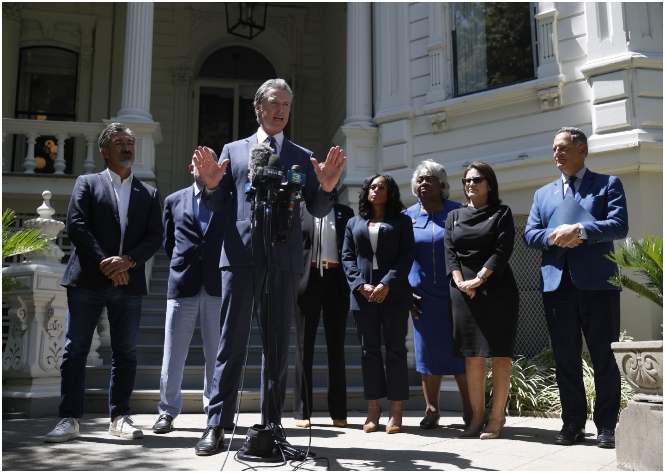California Governor Gavin Newsom has signed into law a groundbreaking piece of legislation aimed at regulating artificial intelligence, marking the state as the first in the nation to adopt formal legal safeguards for “frontier” AI systems.
The new measure, Senate Bill 53 — officially titled the Transparency in Frontier Artificial Intelligence Act (TFAIA) — requires AI developers to publicly disclose the safety protocols they employ once their systems meet a designated “frontier” threshold.
A system is deemed to have reached this threshold when it requires extraordinary computing power to perform a task. The law is designed to guard against catastrophic misuse of advanced AI models, including large-scale cyberattacks and other destructive applications.
Balancing Innovation With Regulation

In a statement announcing the signing, Newsom declared that California seeks to balance innovation with accountability:
“California has proven that we can establish regulations to protect our communities while also ensuring that the growing AI industry continues to thrive. This legislation strikes that balance. AI is the new frontier in innovation, and California is not only here for it — but stands strong as a national leader by enacting the first-in-the-nation frontier AI safety legislation that builds public trust as this emerging technology rapidly evolves.”
The governor framed the law as part of California’s larger role as a global hub for ethical and responsible AI development. Earlier this year, his administration released California’s First-in-the-Nation AI Report, which highlighted the state’s leadership in both innovation and regulation of emerging technologies.
Industry Pushback and Federalism Debate
While the law has been welcomed by advocates of stronger AI oversight, it has drawn significant criticism from technology companies and industry groups. Critics argue that regulating AI safety at the state level may create a patchwork of compliance requirements that could hamper innovation and place California-based firms at a competitive disadvantage.
Several industry leaders have also expressed concerns that comprehensive AI regulation should come from the federal government, warning that state-by-state rules may lead to inconsistencies and legal conflicts in the implementation of national technology policy.
Legal and Policy Significance
The TFAIA sets a precedent in U.S. law by embedding transparency obligations into the design and deployment of advanced AI systems. Legal analysts note that the legislation may become a model for other states or even influence future federal legislation, particularly in the absence of comprehensive congressional action on AI governance.
The bill also raises potential legal questions regarding the interplay between state and federal regulatory authority, especially if AI companies challenge California’s jurisdiction to impose disclosure requirements on global technology platforms.
For now, California has staked out a bold position as the first jurisdiction in the country to directly legislate the frontier risks of artificial intelligence, cementing its reputation as both an innovation leader and a legal trailblazer in technology regulation.

